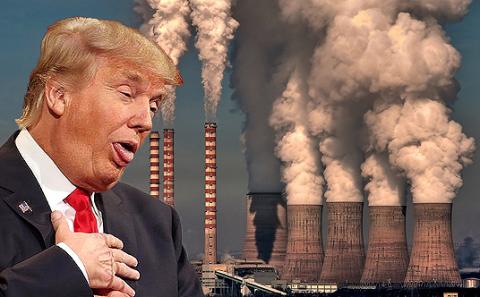Share
Trump's EPA Encourages Pollution By Nearly Eliminating Penalties for Polluters

Pollution is bad. When companies pollute, they face monetary penalties for doing so. If not for the penalties, they would have no reason to follow the rules. Simple concept.
But Trump's Environmental PROTECTION Agency has cut penalties drastically meaning these firms face zero consequences for ruining the one world we have.
Civil penalties for polluters under the Trump administration plummeted during the past fiscal year to the lowest average level since 1994.... In the two decades before Trump took office, EPA civil fines averaged more than $500 million a year..... Last year’s total was 85 percent below that amount — $72 million.... the lowest since the agency’s Office of Enforcement and Compliance Assurance was established.
Civil penalties, which the EPA applies for a range of violations, including water contamination and air pollution, aim to recover the financial benefit a company has reaped by breaking the law and to impose additional costs so that firms are deterred from doing it in the future.
Trump and the Republican Party work for their donors and lobbyists. That is corruption. It is THE SWAMP.
....in addition to the drop in civil penalties for polluting, the amount of money companies must pay to come into compliance with federal environmental laws also declined last fiscal year, to nearly $5.6 billion. That represents the lowest amount of injunctive relief since 2003, in inflation-adjusted dollars, and is below the roughly $7.8 billion average for the two decades before Trump took office.
The decline in civil penalties undermines the EPA’s ability to deter wrongdoing....because they help ensure it is more expensive to violate the law than to comply with it.
“The public expects EPA to protect them from the worst polluters. The Trump EPA is not doing that. What worries me is how industry will respond to EPA’s abandonment of tough enforcement," said Cynthia Giles, who headed the EPA’s enforcement office in the Obama administration and now a guest fellow at the Harvard Environmental and Energy Law Program.
